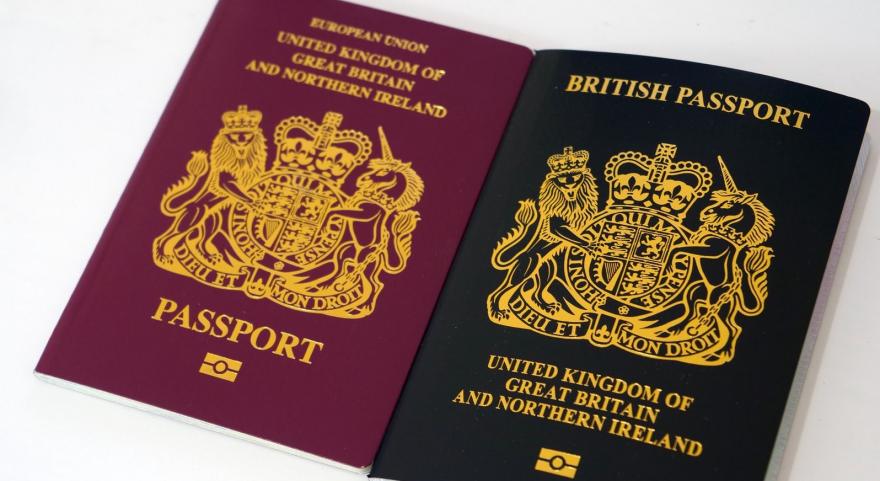Welcome. In this piece, we are going to cover the main areas and key questions regarding Immigration DNA testing for a British passport.
This topic can be a very sensitive and timely issue for those who are experiencing immigration issues and may be separated from family members by international borders and citizenship disputes. It is our aim to provide the most credible and efficient immigration DNA testing process in the UK so that families can solve their passport obstacles and be together again.
The two most common reasons that someone may need to go through immigration DNA testing in the UK, which are:
- When a UK citizen is sponsoring a relative’s immigration process and must serve definitive biological evidence of being a blood relative to the Home Office, embassy, passport office, or consulate. This could be a sibling, aunt or uncle, niece or nephew, or a grandparent.
- When a child is born overseas to UK passport holders who wish to have their UK citizenship passed on to their child
There are also some less common reasons that this immigration DNA testing process may be pursued, such as:
- UKBA & British Embassy court of Custody
- Wills and inheritance claims
- Probate disputes
- Amending a birth certificate
How does the immigration DNA testing process begin?
In both of the common cases mentioned above, the first step is for either the family sponsor or the parents to contact the UK embassy or consulate in the country where they are and ask for advice about what needs to be done. For children born overseas, the parents can request a Consular Report of Birth Abroad and part of that process may involve a DNA immigration test to provide proof of maternity or paternity.
It may be possible, depending on the circumstances of the case, to get legal aid, which provides financial support towards your case.
Collecting DNA samples whilst overseas
In both of these regular situations where immigration DNA testing is required, the person seeking UK citizenship must, of course, undergo a DNA test. The complicated part of the process is that this test will usually need to be done overseas (unless the person in question is in the UK), and by a DNA testing laboratory that has been given Ministry of Justice approval and that follows the Embassy or Passport Office process to the letter. The integrity of the process is absolutely vital to the applicants, for whom the matter of citizenship is very important to the future of their lives, and so a strict chain of custody and documentation are handled by the lab.
On the paperwork side of things, the lab will ask for a written request for DNA evidence from the national authority that is leading the case (such as an embassy). This letter will provide a case number, names, and the relationship that is seeking to be proved. At this stage, different labs and different embassies will do things differently, with some inviting the testee to come in and be tested at the overseas embassy, and others sending a testing kit to the embassy for them to arrange the DNA collection.
What happens after the samples are collected?
If a kit has been sent to the embassy for them to handle the DNA collection (usually in conjunction with their official or panel doctor) then once that process is done it is sent by private courier to the laboratory for analysis. The analysis is often done twice, looking at 21 different genetic markers, in order to provide greater assurances to the testees. Testing takes up to a week for confirmation, review, and reporting, by which time they are able to deliver a decision of a blood relationship, maternity, or paternity, to the embassy.
At this point, the Ministry of Justice immigration DNA testing process is now complete and the applicant’s case result lays in the hands of the UK officials who handle the decision-making process.
What to look for in a testing company?
Every DNA testing company is different, from the types of tests they do, to the way in which they do them. There are, however, a few commonly agreed upon factors that improve the rating or quality of a DNA testing service, they include:
- How quickly they can deliver results, with some express services offering 1-day turnarounds and others promising a week upon receipt of the samples
- How experienced they are with your type of required test
- The guarantee that their tests can be used for immigration cases, applications, and appeals, meaning the lab must be approved by the Ministry of Justice, UK Visas and Immigration, the Home Office, and UK Courts.
- A sample collection service is an added level of customer service, where rather than use an embassy panel doctor, the lab sends a tester to visit the testees (if they are in the UK)
- Fully trained and accredited sample collectors who are experts on the chain of custody process
- High levels of customer service over the phone and email, and ideally the provision of an account or case manager to work with during your immigration DNA testing process.
Why choose DNA legal for your immigration DNA testing?
Here at DNA Legal, we offer a streamlined process that saves practitioners as much as 4 hours per case. This process is available at any of our 2,000+ accredited UK Border Agency approved global clinic locations, as well as through our UK-wide sample collection service. Sample collections are performed by trained testers who adhere to RCN guidelines at all times. Give us a call today or enquire through our website and we can start the process right away to solve your immigration DNA hurdles.

